Post
A catch
Save a catch to start your fishing logbook. You will be able to to share it with the community if yo want!
A fishing trip
Post an ad to go fishing with other fishermen
Save a catch to start your fishing logbook. You will be able to to share it with the community if yo want!
Post an ad to go fishing with other fishermen
Share a thought, a question with the community
My favorite cities
×Join our 3 fishermen in New-Iberia in Iberia. The fishing forecast is currently 5.6. The most caught fishes here are the striped bass, the atlantic sturgeon, the westlope cutthroat trout and the paddlefish. Come try the most famous fishing techniques like the barracuda trolling, how to catch smelt with square net?, support fishing for bass or dive fishing.
Our fishing forecast of New Iberia indicates the best time to go fishing in this city.
The Striped Bass
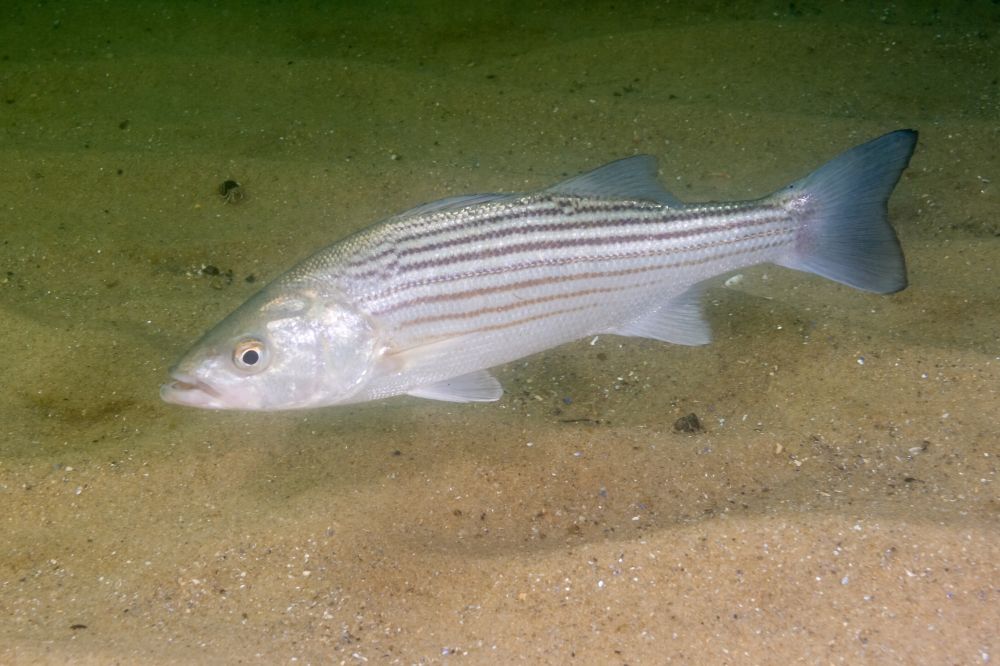
The Striped Bass belongs to the Moronidae family. It can weigh between 4 and 23 kg and size 46 to 140 cm. He can live up to 20 years. It spawns from April to mid-June. It can be fished from May to November. The striped bass has a laterally compressed body, a large terminal mouth, distinct dorsal fins and six to nine continuous lateral bands on both sides of its body. The second anal spine is shorter and thicker than the third anal spine. Striped bass tend to be pale green, olive, steel blue, black or brown on their back, with an iridescent white or silvery belly. Individuals over 25 years of age have been recorded and sexual maturity is reached between 2 and 4 years for men and between 5 and 8 years for women.
The Striped Bass is a famous fish you can catch in New Iberia.The Atlantic Sturgeon
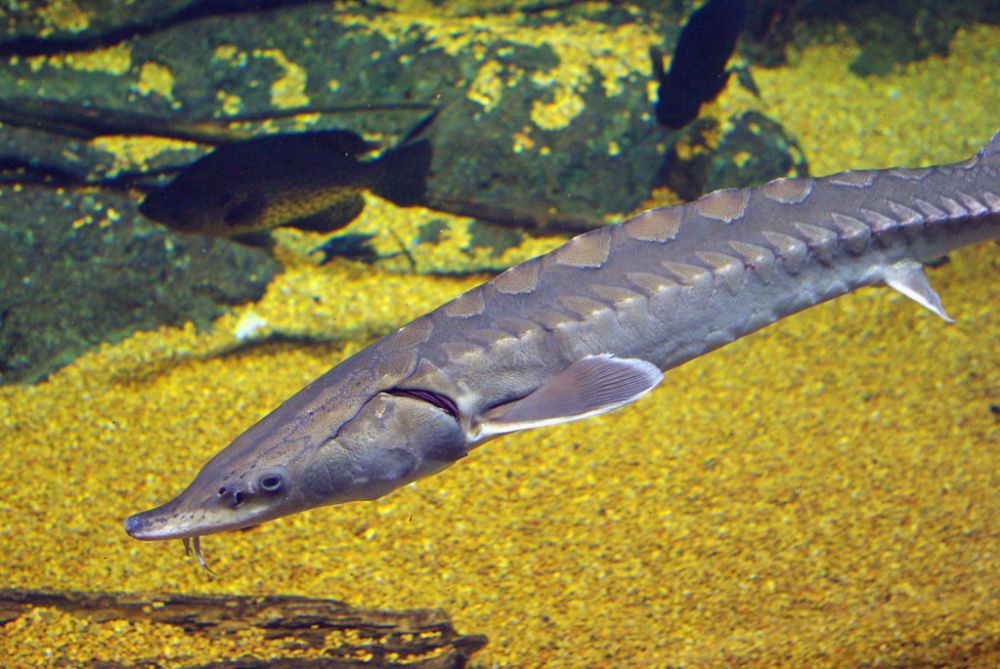
The Atlantic Sturgeon belongs to the Acipenseridae family. Its length can generally reach 3 m; its maximum length is 4.3 m. Its weight is between 150 and 200 kg; it can reach a maximum weight of 368 kg. It can live to 60 years and over. It only reproduces every 2 years. The maximum fertility rate is 3.75 million eggs. It is one of IUCN's protected species and fishing is highly regulated. It can be fished during the cool seasons. It has a snub nose, with four barbells in the front of his belly mouth. It carries five rows of bone plates on the back and sides of the body. The dorsal lobe of its caudal fin is longer than the ventral lobe. The skeleton of this bony fish is largely cartilaginous.
The Atlantic Sturgeon is a famous fish you can catch in New Iberia.The Westlope cutthroat trout
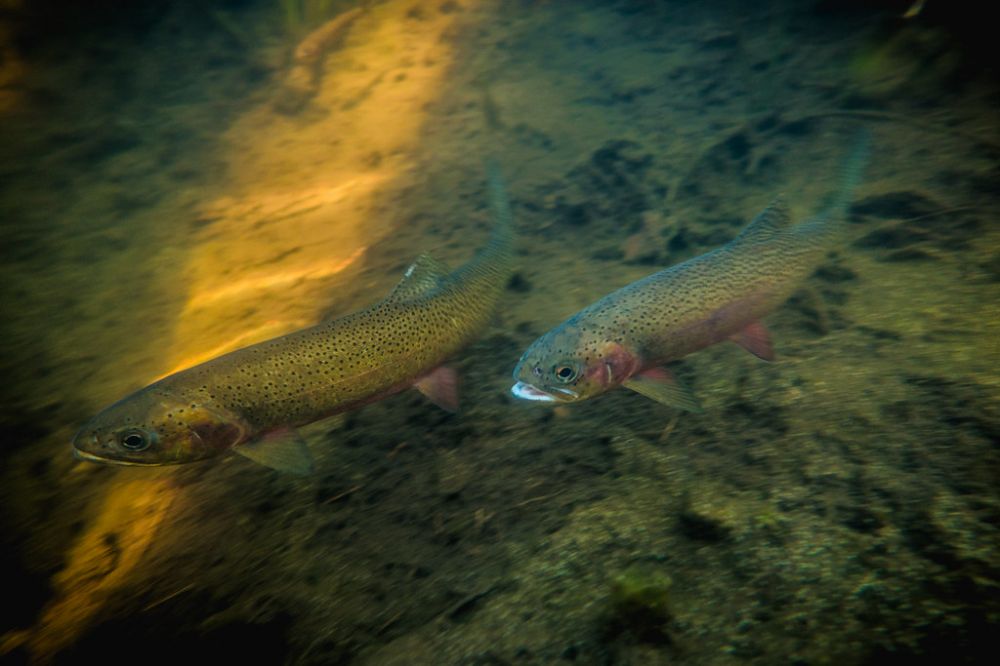
The Westlope cutthroat trout belongs to the Salmonidae Family. The average length of the fish is about 30 cm and rarely exceeds 46 cm. It has an average life span of 2 to 5 years. They breed in the spring. Fishing is prohibited because this fish is endangered. The fish has teeth under the tongue, on the roof of the mouth and on the front of the mouth. The gorge cutting the western slope is common in the waters of lakes and rivers upstream. The skin has small dark freckle-like spots, grouped towards the tail, and is mainly orange in color. They are distinguished from rainbow trout by the red, pink or orange markings under the jaw.
The Westlope cutthroat trout is a famous fish you can catch in New Iberia.The Paddlefish
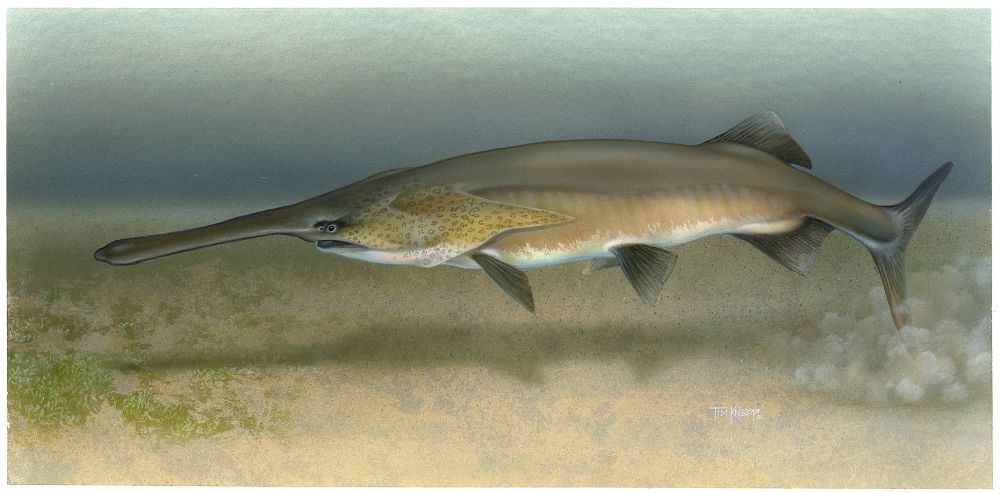
The Paddlefish belongs to the Polyodontidae family. The adult size is between 1.2 m to 1.8 m. It has a lifespan of 20 to 30 years. They spawn in April to May. It can be fished from mid-May to June. The long paddle-shaped snout of this fish represents about one-third of its total body length. The snout helps stabilize fish as they swim and also contains specialized cells that help detect swarms of plankton that this species feeds on. The skin is smooth. Small individuals are pink at the back and white at the base; for older people, around 25 à 30 cm, the body color changes to bluish grey on the back and cream on the vent. The eyes are small compared to the rest of the head and body. On the underside of the snout are two little barbells in front of a large, toothless mouth. When seen through the mouth, the gills are large and show the many closely spaced filaments that trap microscopic food. On each side, a gill cover extends backwards, ending with a long pointed flap. The skeleton is composed of cartilage rather than bone. The tip of the spine extends into the upper lobe of the heterrorcercal tail, much like a shark does.
The Paddlefish is a famous fish you can catch in New Iberia.The Brook Trout
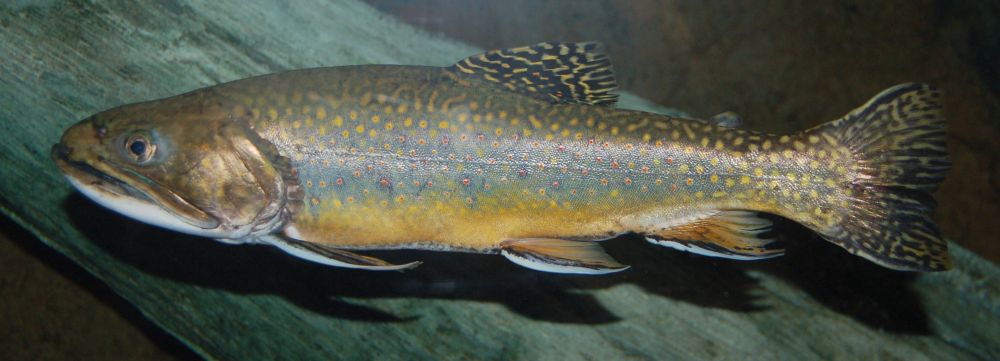
The Brook Trout belongs to the Salmonidae family. The average size of the brook trout is 50 cm and the weight only exceptionally exceeds 7 kg. It has a longevity of 5 years. It reproduces in autumn. It is fished from April to September. Its body is fusiform, laterally compressed, and slender. Its general shape is reminiscent of trout, although a little more massive. The body is arched at the dorsal fin. It has a small but stocky head with a widely split mouth, including teeth on the jaws, tongue and palate. On the body, the scales are small and thin. The Brook trout have two dorsal fins, one of which is characteristic of Salmonids. The color is distributed differently over the body: the back is rather dark brown, with lighter mottling and covered with a network of very close yellow spots. The sides have a beautiful light brown color, sometimes olive green. They also have yellow spots, less tightened. Round and red spots can also be seen on the sides. The color of the belly varies from white to pink, but can be pale yellow to dark red. It all depends on the environment in which it operates. Populations living near the bottom are paler than those living in open water, rather colorful. In males, the livery becomes bright orange during the breeding season. Finally, the pectoral, pelvic and anal fins are bordered by a white border, specific to the genus Salvelinus, highlighted here by a black band.
The Brook Trout is a famous fish you can catch in New Iberia.Our fishing forecast of New Iberia indicates the best time to go fishing in this city.
Our fishing forecast of New Iberia indicates the best time to go fishing in this city.
Our fishing forecast of New Iberia indicates the best time to go fishing in this city.
